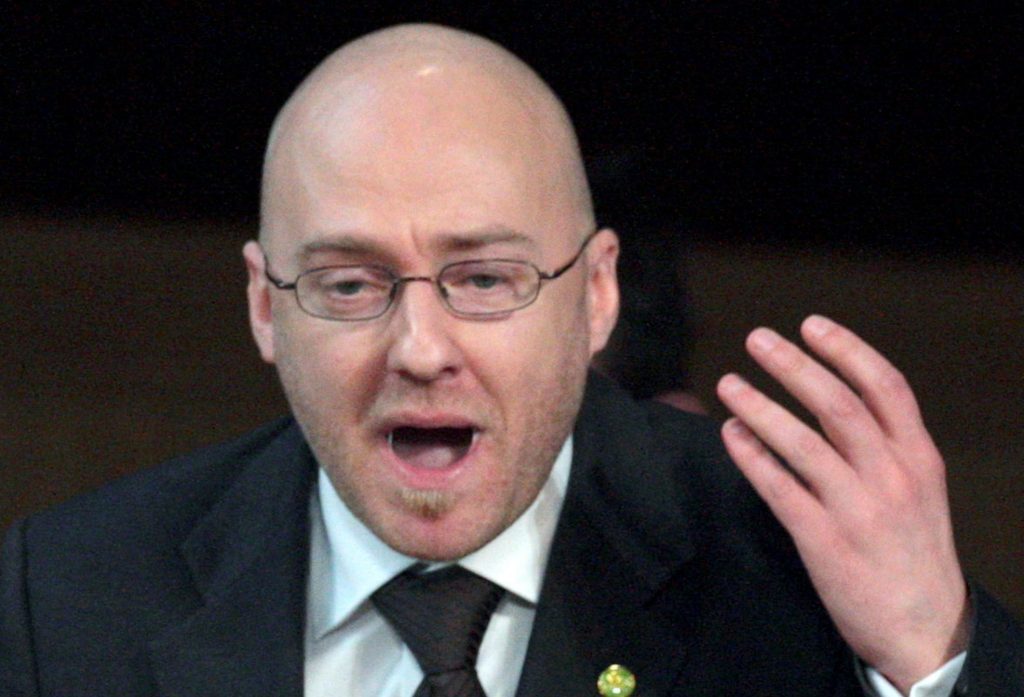The Scottish Government’s environmental plans are “at odds” with transport projects like dualling the A9 and A96, it has been warned.
Scottish Greens co-convener Patrick Harvie questioned the SNP’s commitment to environmental initiatives during cross-examination of the Scottish budget by the finance and constitution committee.
Public finance minister Kate Forbes stood in for disgraced Derek Mackay, who stepped down as the government’s finance chief earlier this month following text message allegations.
Mr Harvie quoted from the Scottish Parliament’s Information Centre (Spice) during the two-and-a-half-hour grilling, adding spending on projects like dualling the A9 between Perth and Inverness and the A96 between Aberdeen and Inverness “dwarfed” the government’s green initiatives.
Spice provides impartial, factual, accurate information and analysis to MSPs in support of parliamentary business.
Ms Forbes noted £1.8 billion was to be spent on low carbon initiatives in the government’s budget.
She argued further: “When it comes to managing transport, I think it is simplistic to say ‘cut all the road projects’, particularly when some of them have to do with safety and security than anything else…in that light I am thinking of the A9 dualling.”
What the Scottish Parliament’s Information Centre says
Alan Rehfisch, senior researcher at the Scottish Parliament’s transport and planning department, was referenced during the session by Mr Harvie.
Mr Harvie quoted Mr Rehfisch as reporting: “Future funding for infrastructure to support new rail routes, bus services, electric vehicles, walking and cycling remain dwarfed by the commitment to invest £6bn over the next 10 years in dualling the A9 and A96 trunk roads, alongside other trunk road improvement projects such as the Sheriffhall roundabout flyovers (£120m) or A7 Maybole bypass (£31.5m).
“Significant investment in major road projects has been found to generate ‘induced demand’ and this investment may simply create additional trips by car, as appears to have happened with the Queensferry Crossing.
“It also generates significant emissions during construction and locks in higher emission travel choices for years to come.
“This significant trunk road investment appears at odds with the Infrastructure Commission’s recommendations that no net additional capacity for private cars be added to the road network and that action needs to be taken to manage demand for road transport.
“It is also difficult to see how it is compatible with the climate commitments in the new NTS (National Transport Strategy).”
“Reduce bus fares”
Ms Forbes said: “We have consciously shifted focus to low carbon infrastructure and I think £1.8 billion is a significant headline figure.”
Mr Harvie also asked what steps the Scottish Government had followed, including advice from the Scottish Parliament, in encouraging public transport use – such as reducing bus fares for young people.
Ms Forbes responded: “It is an area we are willing to look at and is one I would like to see the costings for.
“While in this year’s budget we have increased overall funding for rail and bus services which includes funding of the national concessionary travel scheme if there were other proposals – including expanding concessionary travel to those age 20 and under my questions would be how much it costs and where we find the money.”
Mr Harvie responded: “(Reducing bus fares) would be an easy, affordable and I suspect popular move which would not only encourage young people to get public transport to college but would cut the cost of work and get families to use public transport instead of a car.”
Ms Forbes also reminded the committee of the “unique” nature of this year’s Scottish budget, because it came ahead of Westminster’s.
She said: “”There are obviously some uncertainties facing this year’s budget. We have made assumptions…based on spending commitment from Conservative manifesto.
“Any attempt at contact between Scottish Government officials and treasury officials has led to treasury officials telling Scot Gov officials to refer to Conservative manifesto spending commitments.”
A spokesperson for the Treasury confirmed this was normal procedure ahead of budgets but would not comment further.

